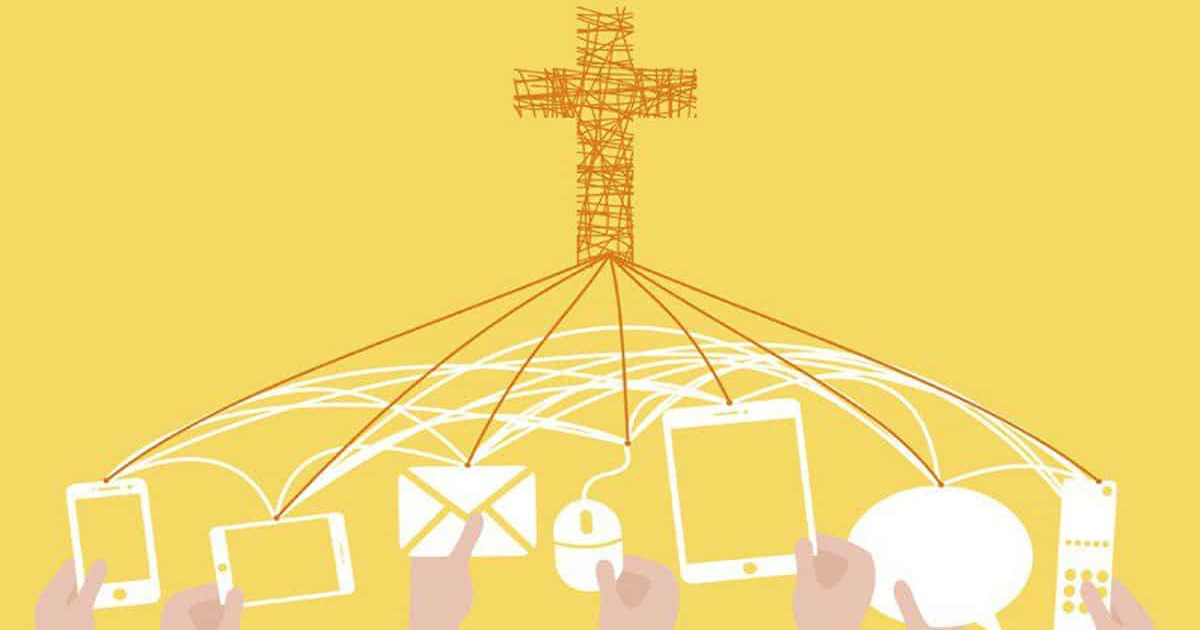It has been 90 years since Pius XI’s first radio message “To All Nations and Every Creature” on February 12, 1931. Since then, the Church has always paid special attention to new technologies in the field of communication. In 1998, in fact, St. John Paul II was portrayed sitting in front of a computer with the logo of the Holy See and pointed out how digital technology was the new frontier of evangelization. The same Pope Benedict XVI published his first tweet December 12, 2012 and Pope Francis in 2016 instead opened an account on a purely youth platform such as Instagram.
Every head of the Church has recognized in the technological tools in the field of communication a great possibility to communicate the Gospel to all so that the mission of the Church is always promoted with the ardor necessary to reach everyone in every corner of the earth and to give voice to the marginalized of this society.
Already in the Pastoral Instruction Communio et Progressio published by order of the Second Vatican Ecumenical Council in 1971, the press, cinema, radio and television were recognized as “gifts of God,” (1) destined, according to the plan of Providence, to unite men in fraternal bonds, in order to make them collaborators in His plans for salvation.
And 20 years later in the Pastoral Instruction “Aetatis Novae” we can read the concrete invitation to use the media as a pastoral tool:
“The work of Catholic media is not merely an additional activity added to all those of the Church: in fact, social communications have a role to play in all aspects of the Church’s mission. Thus we should not be content to have a pastoral plan for communications, but it is necessary that communications be an integral part of every pastoral plan because they in fact have a contribution to make to every other apostolate, ministry or program.”
After all, St. Vincent himself used the means of communication of his time to ensure that the Vincentians remained united and kept alive the mission to the poor. It is thanks to his numerous letters that today we can know the thought of our founder and draw on his holiness.
Let us think about how useful social networks have been during emergencies such as Covid19 or the recent earthquake in Haiti. Without today’s communication tools we would have had difficulty in reaching many isolated and needy families or in making our support felt by missionaries in the most distant missions.
Obviously, it is not the intention of this article to place undue enthusiasm on the virtualization of relationships. On the contrary, it is precisely the accurate knowledge of the medium that allows us to understand its merits and defects. Often the excessive use of communications based only on the use of the keyboard lowers the levels of empathy. Empathy is the necessary quality for a compassionate heart, but at the same time today it is useful to bear witness to charity through social media.
These tools invoke our responsibility both in knowing how to use them, as a “gift of God” and as a means useful for something deeper: namely, the possibility they give of reaching the hearts of strangers and inviting them to have a direct experience of God’s love.
In fact, a conscious use of digital tools does not aim to replace the encounter in the flesh, on the contrary: they aim to facilitate it by overcoming, at first, the barriers of space and time. Pope Francis guides us in this great balance between the digital Gospel message and embodied responsibility, in fact in his Message for the 55th World Communications Day he tells us that “The good news of the Gospel spread throughout the world thanks to encounters from person to person, from heart to heart. Men and women who accepted the same invitation: ‘Come and see,’ and were struck by a ‘more’ humanity that shone through in the gaze, word and gestures of people who bore witness to Jesus Christ. All tools are important, and that great communicator by the name of Paul of Tarsus would certainly have made use of email and social messages; but it was his faith, his hope and his charity that impressed the contemporaries who heard him preach and had the good fortune to spend time with him, to see him during an assembly or in a one-on-one conversation.”
It is only by putting the person and God’s plan for them at the center that we can best understand the opportunity given by technologies, but we need to engage personally not only as users, but also as promoters and knowers of a world that has now become real and pervasive. If we want everyone to have access to Salvation, it is important that each one of us witnesses to Jesus Christ on the digital continent!
Girolamo Grammatico
Source: Nuntia, August 2021.






0 Comments